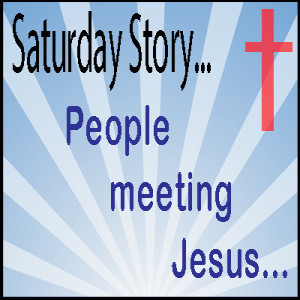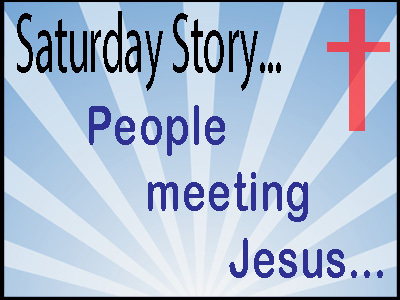
436K
Downloads
3359
Episodes
G’day and welcome to Partakers Christian Podcasts! Join us for uplifting Bible teaching, inspiring readings, heartfelt worship, powerful prayers, and fascinating church history. Whether you’re new to faith or growing deeper in your journey, we’re here to encourage and equip you. 🎧 Tune in, interact, and be inspired—wherever you are in the world.
G’day and welcome to Partakers Christian Podcasts! Join us for uplifting Bible teaching, inspiring readings, heartfelt worship, powerful prayers, and fascinating church history. Whether you’re new to faith or growing deeper in your journey, we’re here to encourage and equip you. 🎧 Tune in, interact, and be inspired—wherever you are in the world.
Episodes

7 hours ago
Bible Reading - Psalm 81 to 85
7 hours ago
7 hours ago
Psalm 81 to Psalm 85
Often we hear the Psalms one by one, but today we offer you the chance to hear a group of Psalms read as a collection!
Psalm 81
For the director of music. According to gittith. Of Asaph.
1 Sing for joy to God our strength;
shout aloud to the God of Jacob!
2 Begin the music, strike the timbrel,
play the melodious harp and lyre.
3 Sound the ram’s horn at the New Moon,
and when the moon is full, on the day of our festival;
4 this is a decree for Israel,
an ordinance of the God of Jacob. 5 When God went out against Egypt,
he established it as a statute for Joseph.
Right mouse click or tap here to save/download these Psalms as a MP3 file
Psalm 82
A psalm of Asaph.
1 God presides in the great assembly;
he renders judgment among the “gods”:
2 “How long will you defend the unjust
and show partiality to the wicked?
3 Defend the weak and the fatherless;
uphold the cause of the poor and the oppressed.
4 Rescue the weak and the needy;
deliver them from the hand of the wicked.
5 “The ‘gods’ know nothing, they understand nothing.
They walk about in darkness;
all the foundations of the earth are shaken.
6 “I said, ‘You are “gods”;
you are all sons of the Most High.’
7 But you will die like mere mortals;
you will fall like every other ruler.”
8 Rise up, O God, judge the earth,
for all the nations are your inheritance.
Right mouse click or tap here to save/download these Psalms as a MP3 file
Psalm 83
A song. A psalm of Asaph.
1 O God, do not remain silent;
do not turn a deaf ear, do not stand aloof, O God.
2 See how your enemies growl,
how your foes rear their heads.
3 With cunning they conspire against your people;
they plot against those you cherish.
4 “Come,” they say, “let us destroy them as a nation,
so that Israel’s name is remembered no more.”
5 With one mind they plot together;
they form an alliance against you —
6 the tents of Edom and the Ishmaelites,
of Moab and the Hagrites,
7 Byblos, Ammon and Amalek,
Philistia, with the people of Tyre.
8 Even Assyria has joined them to reinforce Lot’s descendants.
Right mouse click or tap here to save/download these Psalms as a MP3 file
Psalm 84
For the director of music. According to gittith. Of the Sons of Korah. A psalm.
1 How lovely is your dwelling place, Lord Almighty!
2 My soul yearns, even faints, for the courts of the Lord;
my heart and my flesh cry out for the living God.
3 Even the sparrow has found a home,
and the swallow a nest for herself,
where she may have her young — a place near your altar,
Lord Almighty, my King and my God.
4 Blessed are those who dwell in your house; they are ever praising you.
Right mouse click or tap here to save/download these Psalms as a MP3 file
Psalm 85
1 You, Lord, showed favor to your land;
you restored the fortunes of Jacob.
2 You forgave the iniquity of your people
and covered all their sins.
3 You set aside all your wrath and turned from your fierce anger.
4 Restore us again, God our Savior,
and put away your displeasure toward us.
5 Will you be angry with us forever?
Will you prolong your anger through all generations?
6 Will you not revive us again, that your people may rejoice in you?
7 Show us your unfailing love, Lord, and grant us your salvation.
Right mouse click or tap here to save/download these Psalms as a MP3 file

19 hours ago
Bible Thought - Keep Loving - Revelation 1 & 2
19 hours ago
19 hours ago
Has your love gone cold?
That figure is the risen and ascended Jesus Christ! The one we Christians down through history have proclaimed as the King of Kings and Lord of Lords! He was the greatest gift of all, freely given, in order to save the world! Salvation, as a gift of grace, imparted to all those who would accept Jesus Christ as saviour! And one group of people had taken Him up on that offer, a church we read about in Revelation 2:1-7

2 days ago
Bible Reading - Psalms 41 to 45
2 days ago
2 days ago
Psalm 41 to Psalm 45
Often we hear the Psalms one by one, but today we offer you the chance to hear a group of Psalms read as a collection!
Psalm 41
For the director of music. A psalm of David.
1 Blessed are those who have regard for the weak;
the LORD delivers them in times of trouble.
2 The LORD protects and preserves them –
they are counted among the blessed in the land –
he does not give them over to the desire of their foes.
3 The LORD sustains them on their sick-bed
and restores them from their bed of illness.
4 I said, ‘Have mercy on me, LORD;
heal me, for I have sinned against you.’
5 My enemies say of me in malice,
‘When will he die and his name perish?’
6 When one of them comes to see me,
he speaks falsely, while his heart gathers slander;
then he goes out and spreads it around.
7 All my enemies whisper together against me;
they imagine the worst for me, saying,
8 ‘A vile disease has afflicted him;
he will never get up from the place where he lies.’
9 Even my close friend, someone I trusted,
one who shared my bread, has turned against me.
10 But may you have mercy on me, LORD;
raise me up, that I may repay them.
11 I know that you are pleased with me,
for my enemy does not triumph over me.
12 Because of my integrity you uphold me
and set me in your presence for ever. ,
13 Praise be to the LORD, the God of Israel,
from everlasting to everlasting.
Amen and Amen.
Psalm 42
For the director of music. A maskil of the Sons of Korah.
1 As the deer pants for streams of water,
so my soul pants for you, my God.
2 My soul thirsts for God, for the living God.
When can I go and meet with God?
3 My tears have been my food day and night,
while people say to me all day long, ‘Where is your God?’
4 These things I remember as I pour out my soul:
how I used to go to the house of God
under the protection of the Mighty One
with shouts of joy and praise among the festive throng.
5 Why, my soul, are you downcast?
Why so disturbed within me?
Put your hope in God, for I will yet praise him,
my Saviour and my God.
6 My soul is downcast within me;
therefore I will remember you from the land of the Jordan,
the heights of Hermon – from Mount Mizar.
7 Deep calls to deep in the roar of your waterfalls;
all your waves and breakers have swept over me. ,
8 By day the LORD directs his love,
at night his song is with me –
a prayer to the God of my life. ,
9 I say to God my Rock,
‘Why have you forgotten me?
Why must I go about mourning, oppressed by the enemy?’
10 My bones suffer mortal agony as my foes taunt me,
saying to me all day long, ‘Where is your God?’ ,
11 Why, my soul, are you downcast?
Why so disturbed within me?
Put your hope in God, for I will yet praise him,
my Saviour and my God.
Psalm 43
1 Vindicate me, my God, and plead my cause
against an unfaithful nation.
Rescue me from those who are deceitful and wicked.
2 You are God my stronghold.
Why have you rejected me?
Why must I go about mourning, oppressed by the enemy?
3 Send me your light and your faithful care,
let them lead me;
let them bring me to your holy mountain,
to the place where you dwell.
4 Then I will go to the altar of God,
to God, my joy and my delight.
I will praise you with the lyre,
O God, my God.
5 Why, my soul, are you downcast?
Why so disturbed within me?
Put your hope in God,
for I will yet praise him,
my Saviour and my God.
Psalm 44
For the director of music. Of the Sons of Korah. A maskil.
1 We have heard it with our ears, O God;
our ancestors have told us what you did in their days,
in days long ago.
2 With your hand you drove out the nations
and planted our ancestors;
you crushed the peoples and made our ancestors flourish.
3 It was not by their sword that they won the land,
nor did their arm bring them victory;
it was your right hand, your arm,
and the light of your face, for you loved them.
4 You are my King and my God,
who decrees victories for Jacob.
5 Through you we push back our enemies;
through your name we trample our foes.
6 I put no trust in my bow,
my sword does not bring me victory;
7 but you give us victory over our enemies,
you put our adversaries to shame.
8 In God we make our boast all day long,
and we will praise your name for ever.
9 But now you have rejected and humbled us;
you no longer go out with our armies.
10 You made us retreat before the enemy,
and our adversaries have plundered us.
11 You gave us up to be devoured like sheep
and have scattered us among the nations.
12 You sold your people for a pittance,
gaining nothing from their sale.
13 You have made us a reproach to our neighbours,
the scorn and derision of those around us.
14 You have made us a byword among the nations;
the peoples shake their heads at us.
15 I live in disgrace all day long,
and my face is covered with shame
16 at the taunts of those who reproach and revile me,
because of the enemy, who is bent on revenge.
17 All this came upon us,
though we had not forgotten you;
we had not been false to your covenant.
18 Our hearts had not turned back;
our feet had not strayed from your path.
19 But you crushed us and made us a haunt for jackals;
you covered us over with deep darkness.
20 If we had forgotten the name of our God
or spread out our hands to a foreign god,
21 would not God have discovered it,
since he knows the secrets of the heart?
22 Yet for your sake we face death all day long;
we are considered as sheep to be slaughtered.
23 Awake, Lord! Why do you sleep?
Rouse yourself! Do not reject us for ever.
24 Why do you hide your face
and forget our misery and oppression?
25 We are brought down to the dust;
our bodies cling to the ground.
26 Rise up and help us;
rescue us because of your unfailing love.
Psalm 45
For the director of music. To the tune of ‘Lilies’. Of the Sons of Korah. A maskil. A wedding song.
1 My heart is stirred by a noble theme
as I recite my verses for the king;
my tongue is the pen of a skilful writer.
2 You are the most excellent of men
and your lips have been anointed with grace,
since God has blessed you for ever.
3 Gird your sword on your side, you mighty one;
clothe yourself with splendour and majesty.
4 In your majesty ride forth victoriously
in the cause of truth, humility and justice;
let your right hand achieve awesome deeds.
5 Let your sharp arrows pierce the hearts of the king’s enemies;
let the nations fall beneath your feet.
6 Your throne, O God, will last for ever and ever;
a sceptre of justice will be the sceptre of your kingdom.
7 You love righteousness and hate wickedness;
therefore God, your God, has set you above your companions
by anointing you with the oil of joy.
8 All your robes are fragrant with myrrh and aloes and cassia;
from palaces adorned with ivory
the music of the strings makes you glad.
9 Daughters of kings are among your honoured women;
at your right hand is the royal bride in gold of Ophir.
10 Listen, daughter, and pay careful attention:
Forget your people and your father’s house.
11 Let the king be enthralled by your beauty;
honour him, for he is your lord.
12 The city of Tyre will come with a gift,
people of wealth will seek your favour.
13 All glorious is the princess within her chamber;
her gown is interwoven with gold.
14 In embroidered garments she is led to the king;
her virgin companions follow her –
those brought to be with her.
15 Led in with joy and gladness,
they enter the palace of the king.
16 Your sons will take the place of your fathers;
you will make them princes throughout the land.
17 I will perpetuate your memory through all generations;
therefore the nations will praise you for ever and ever.
Right mouse click or tap here to save/download these Psalms as a MP3 file

2 days ago
2 days ago
John meets the Ascended Jesus
I turned around to see the voice that was speaking to me. And when I turned I saw seven golden lampstands, and among the lampstands was someone like a son of man, dressed in a robe reaching down to his feet and with a golden sash around his chest. The hair on his head was white like wool, as white as snow, and his eyes were like blazing fire. His feet were like bronze glowing in a furnace, and his voice was like the sound of rushing waters. In his right hand he held seven stars, and coming out of his mouth was a sharp, double-edged sword. His face was like the sun shining in all its brilliance.
When I saw him, I fell at his feet as though dead. Then he placed his right hand on me and said: Do not be afraid. I am the First and the Last. I am the Living One; I was dead, and behold I am alive for ever and ever! And I hold the keys of death and Hades. Write, therefore, what you have seen, what is now and what will take place later. The mystery of the seven stars that you saw in my right hand and of the seven golden lampstands is this: The seven stars are the angels of the seven churches, and the seven lampstands are the seven churches. Revelation 1:12-20!
Jesus has made an appearance to his close friend and disciple, John! Jesus is now the resurrected and ascended King of Kings and Lord of Lords! In Revelation 2 and 3, this Jesus sends messages to seven groups of people who have taken Him up on that offer of salvation!: the first century churches of Ephesus, Smyrna, Pergamum, Thyatira, Sardis, Philadelphia and Laodicea. Here Jesus tells the churches to keep doing, stop doing and be blessed! But first, lets look at Jesus, Himself!
Jesus description
Jesus holds the seven stars in his right hand and walks among the seven golden lampstands. Jesus who is the First and the Last, who died and came to life again! Jesus, who has the sharp, double-edged sword, is the Son of God and whose eyes are like blazing fire and whose feet are like burnished bronze. Jesus Christ, who holds the seven spirits of God and the seven stars! Jesus Christ, who is holy and true and holds the key of David. Jesus Christ, who opens what no one can shut and shuts what no one else can open. Jesus Christ, who is the Amen, the faithful and true witness, the ruler of God’s creation.
Keep doing!
To these 7 churches, of Ephesus, Smyrna, Pergamum, Thyatira, Sardis, Philadelphia, Laodicea, Jesus praises them individually and separately! They are to continue doing such things as working hard for the Gospel, remaining faithful, not tolerating evil, not being seduced by false teachers, for persevering and enduring hardship and not growing weary. Jesus praises them for being faithful through suffering, poverty and persecution for His sake. Jesus praises them for remaining true to Him and for not renouncing their faith! Jesus, the Lord of Lords and King of Kings, being ever gracious to His followers.
Stop doing
But He also rebukes them and commands that they stop doing certain things! They are to stop listening to various false teachers and prophets, being swayed by their clever and seductive words and actions. He rebukes because they have forgotten that they are to love Jesus above all and they have forsaken him. In his rebuke, Jesus commands that they repent, that is to ask Him for forgiveness and be willing to turn away from the false teachers, false prophets and false way of living.
Be blessed!
To all those who persevere, overcome and are victorious, Jesus will give the right to eat from the tree of life, which is in the paradise of God. To all those who overcome and are victorious, they wont be hurt by the second death. To all those who overcome and are victorious, Jesus will give the victor’s crown! Those who overcome and are victorious, will be given authority over the nations! To those who overcome and are victorious, they will be in the temple of God, never to leave it! Jesus will do the most extraordinary thing, of writing on them the name of God, the city of God and His new name! To those who overcome and are victorious, their name will be in the book of life, and Jesus will acknowledge them before God the Father and his angels. Then finally, for those who overcome and are victorious, they will sit with their Master, the Lord Jesus Christ, on His throne, just as He was victorious and sat down with His Father on his throne. That’s you and me if we hold out to the end!
Again, I ask, who do you say Jesus is? But further, what are you going to do with this Jesus and let Him do to you?
Right mouse click or tap here to save/download this as a MP3 audio file

3 days ago
Saturday Testimony - Life
3 days ago
3 days ago
Saturday Story
People meeting Jesus
The story of Life from the Faroe Islands...
Today we hear the story of a friend of mine. Her name is Life and she is from the Faroe Islands. Let's look together at how and why she started her Christian journey and the relevancy of Jesus Christ to her life! Come and listen to her story of faith...

3 days ago
Atonement 5 – Atonement is At-One-Ment
3 days ago
3 days ago
Atonement 5
Conclusion: Atonement is At-One-Ment?
Today we continue our series of 5 podcasts concerning that big Bible Word, Atonement. We seek to explore what conclusions we can make concerning Jesus Christian, Atonement and people today.
We will look at 6 blessings and consequences because of the atonement and our acceptance of it: Atonement sealing; Atonement peace; Atonement reconciliation; Atonement salvation; Atonement gathering and Atonement life to come.
Come and listen to find out more!
Right mouse click or tap here to download as a mp3 file

4 days ago
4 days ago
Teachings of Seraphim
Part 20. Acquiring the Holy Spirit
(From the Saint's Conversation with Motovilov)
The true goal of our Christian life consists of acquiring God’s Holy Spirit. Fasting and vigil, prayer, mercy, and every other good deed performed for Christ — are means for acquiring the Holy Spirit of God. Only deeds performed for Christ give us the fruits of the Holy Spirit.
Some say that the foolish virgins lacking enough oil in their lamps is meant to be understood as a lack of good deeds (see Mt. 25:1-12). Such an understanding is not completely correct. How could there have been a lack of good deeds when they, though foolish, are still called virgins? For virginity is the highest virtue, as a state equal to the angels, and could by itself serve in place of all other virtues.
I, the wretched, think that they did not have enough of the grace of the All-Holy Spirit of God. These virgins, because of their spiritual injudiciousness, supposed in performing good deeds that it is only necessary to do good works to be a Christian: "We performed a good deed and thus did God’s will.”Whether or not they had received the grace of the Holy Spirit, whether they had attained it, they did not even bother to find out ... But, this acquiring of the Holy Spirit is in fact that oil which the foolish virgins lacked. They are called foolish because they forgot about the essential fruit of virtue — the grace of the Holy Spirit — without which there is no salvation for anyone and cannot be. For "through the Holy Spirit every soul is quickened, and through its purification, it is exalted and illumined by the Triune Unity in a Holy mystery.”The Holy Spirit Himself settles in our souls, and this occupation of our souls by Him, the All-Ruling, and this coexistence of our spirit with His One Trinity, is granted only through the diligent acquiring, on our part, of the Holy Spirit, which prepares, in our soul and body, the throne for the coexistence of God the All-Creator with our spirit, by the immutable word of God: "And I will walk among you and will be your God, and ye shall be my people”(Leviticus 26:12).
This is the very oil in the lamps of the wise virgins, which burned brightly and steadily; the virgins with these burning lamps could await the Groom coming at midnight, and enter the chamber of joy with him. The foolish ones, seeing their lamps going out, though they went to the market to buy oil, did not manage to return in time, for the doors were already locked.
The market is our life; the doors of the bridal chamber — locked and not permitting entrance to the Groom — human death, the virgins wise and foolish, Christian souls; the oil, not deeds, but the grace of the All Holy Spirit of God received through them, transforming from decay to incorruption, from emotional death into spiritual life, from darkness to light, from the manger of our existence, where our passions are tied like beasts and animals, into a church of God, into the all-lighted chamber of eternal joy in Jesus Christ.
Click or Tap here to listen to or save this as an audio mp3 file

4 days ago
Atonement 4 – Atonement and Jesus Christ
4 days ago
4 days ago
Atonement 4
Atonement and Jesus Christ
Today we continue our series of 5 podcasts concerning that big Bible Word, Atonement, and continue to link to Jesus Christ.
As we sum up the atonement for sin because of Jesus, let’s look very briefly at just four words in our quest to explain and explore atonement. Remember, that the Church has been discussing this for the last 2000 years and will probably continue discussing it, trying to work it out until the Lord Jesus comes again.
We shall look at amazing expiation, satisfying propitiation, precious redemption and sufficient substitution. These 4 words can be summed up by the phrase Atonement love.
Atonement love is good news! When was the last time that you, as a Christian, told somebody else of this love
Right mouse click or tap here to download as a mp3 file

5 days ago
5 days ago
Teachings of Seraphim
Part 19. The Light of Christ
In order to accept and perceive the light of Christ in one’s heart, it is necessary to divert oneself from the external as much as possible. First, by cleansing the soul with penitence and good deeds with true faith in the Crucified; then, by closing the physical eyes, it is necessary to immerse the mind in the heart and appeal to the name of our Lord Jesus Christ continually. Then, by measure of our zealousness and fervour of spirit for the Beloved (Lk. 3:22), a person with the calling of this name finds delight, which arouses a thirst toward greater enlightenment.
When a person internally contemplates the eternal light, his mind becomes clean and free of any sensory notions. Then, by being completely immersed in the contemplation of uncreated beauty, he forgets everything sensory, does not want to see even himself, but desires to hide in the heart of the earth, if only not to be deprived of this true good God.
Click or Tap here to listen to or save this as an audio mp3 file

5 days ago
5 days ago
Atonement 3
Atonement Today (Romans 3:21-26; Hebrews 10:1-10)
Today we continue our series of 5 podcasts concerning that big Bible Word, Atonement.
21 But now apart from the law the righteousness of God has been made known, to which the Law and the Prophets testify. 22 This righteousness is given through faith in Jesus Christ to all who believe. There is no difference between Jew and Gentile, 23 for all have sinned and fall short of the glory of God, 24 and all are justified freely by his grace through the redemption that came by Christ Jesus. 25 God presented Christ as a sacrifice of atonement, through the shedding of his blood – to be received by faith. He did this to demonstrate his righteousness, because in his forbearance he had left the sins committed beforehand unpunished 26 – he did it to demonstrate his righteousness at the present time, so as to be just and the one who justifies those who have faith in Jesus. (Romans 3:21-26)
Here we see in Romans, that salvation is for all who believe, regardless of who they are and regardless of social status and stature. Salvation is through faith alone by grace alone to any person of any age or nation, who put their trust in God alone through Jesus Christ alone. Jesus Christ alone and through His atoning sacrifice on the cross. Declared righteous before God the Father, because of atonement through God the Son, Jesus Christ and Him alone.
In the podcast today we look at questions such as: what does Atonement mean for us today? What does Atonement have to do with salvation?
Right mouse click or tap here to download as a mp3 file to find out more.




